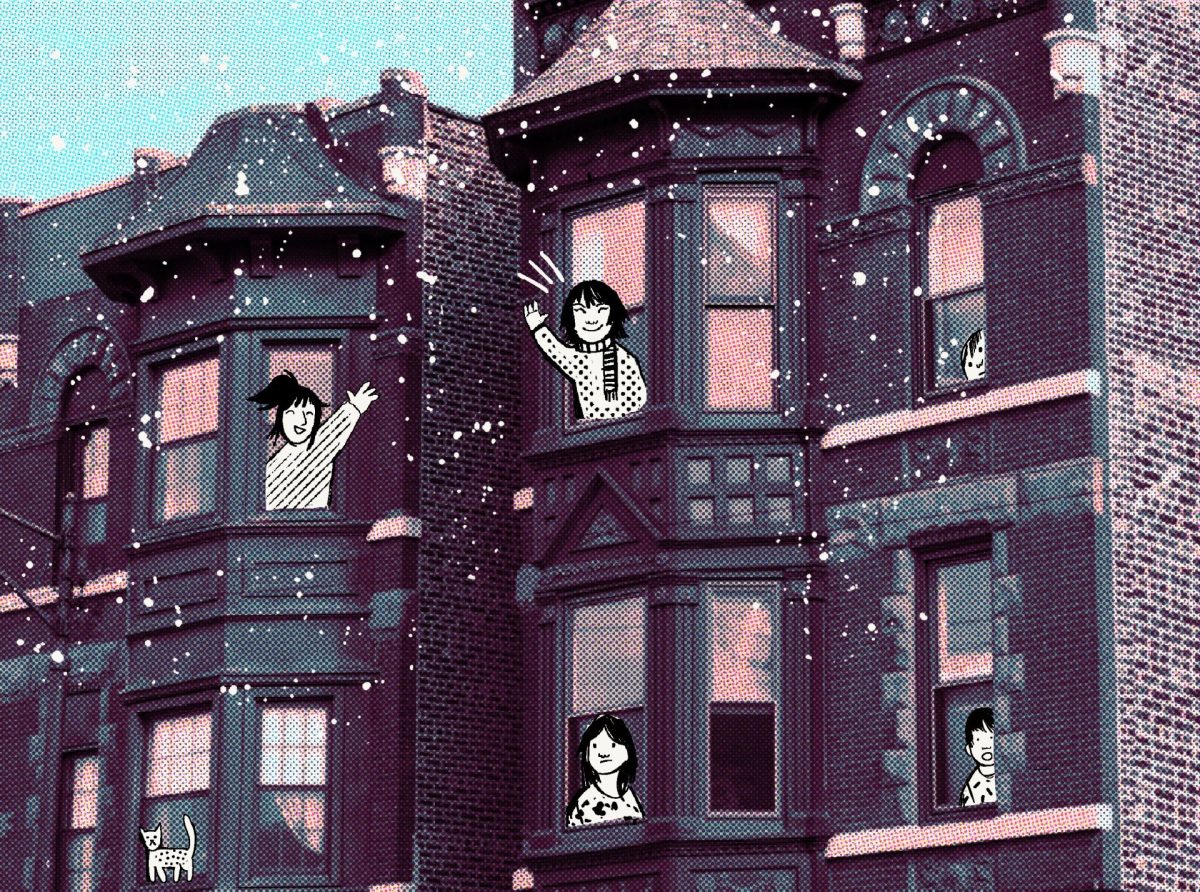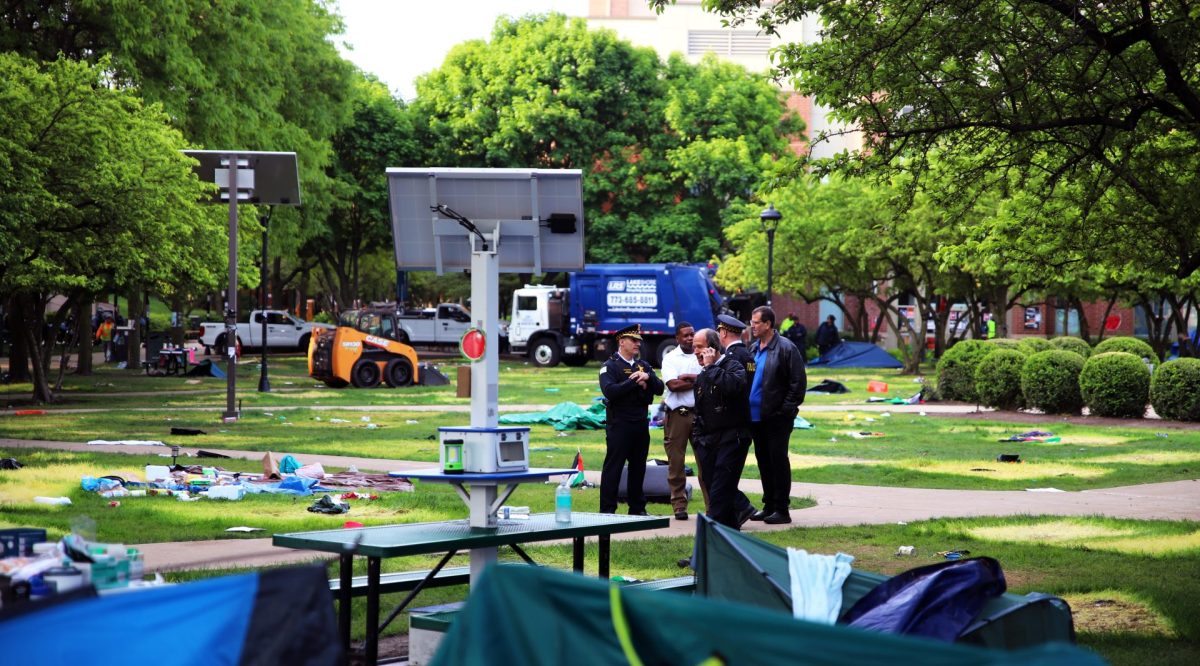This past January, Chicagoans cozied up indoors due to below-freezing temperatures and opaque fog. Experts have predicted that the rest of the 2024 winter will be extreme, with wind chills 30 below and a polar vortex predicted in February, leaving residents concerned about who is responsible for preparing their homes for inclement weather.
“Young renters are often vulnerable to landlords violating policy and must over-prepare,” said Tom Wagner, residential lawyer. “An informed renter can guarantee a landlord’s protocol fulfillment in almost all cases.”
Though do-it-yourself tips can add to prevention, landlords are fully responsible for functioning plumbing, infrastructure and heating under the Residential Landlord and Tenant Ordinance.
This policy includes the Chicago Heat Ordinance, requiring landlords to maintain a minimum of 64 degrees in habitable spaces, defined as “areas of a building intended for recreation, working, sleeping, eating or cooking” from Sept. 15 through June 1. This does not include closets, garages, storage areas or hallways. The ordinance also specifies that external heating equipment such as portable space heaters, cooking appliances or fireplaces do not count as equitable heat sources.
“A rental unit without heat is an immediate violation of the Heat Ordinance, and tenants should file an emergency maintenance request with their landlord,” Wagner said. “If the problem is not resolved, renters can file a complaint with the city by calling the number 311 and an inspector will evaluate the apartment and decide the landlord’s delinquency.”
Rachal Setzer, a current DePaul student living in an on-campus apartment, had her heating system break earlier this January.
“No updates or information turned into a guessing game of when I would not be freezing,” Setzer said. “Thankfully, they (my landlord) reached out to the HVAC company, who could get here by the next morning.”
If an emergency arises, tenants can secure an outside service and bill their landlord with paid receipts, receive correction from their landlord, or, in extreme cases, secure substitute housing and be excused for that month’s rent.
If the tenant chooses to acquire maintenance from the landlord, a written petition must be sent to the landlord requesting it be fixed within 24 hours. In an emergency where landlords do not complete the correction in 24 hours, tenants can withhold rent until it is complete.
Though landlords typically fix issues quickly to avoid safety violations, any period of improper heating can lead to bigger problems, including structural damage on doors and windows and frozen water pipes that burst and flood.
“I inform my residents how they can further prevent emergencies,” said Chicago property manager Hannah Burns. “Doors and windows should always be closed to stop drafts or internal structure damage. Thermostats should be over 68 degrees, and kitchen and bathroom faucets should be left on a slow drip to prevent still water from freezing.”
During Chicago’s winter, a primary concern is entering and exiting buildings safely due to heavy snowfall and ice.
On the exterior of their building, residents need to know who is responsible for snow and ice removal. Under Chicago’s Municipal Code, every landlord who is in charge of a property must remove snow and ice from sidewalks adjoining their property.
“Building owners are required to clear snow and ice from public sidewalks and private parking lots, exit doors and exterior stairs and post warning signs in areas where ice has accumulated,” said Department of Buildings Commissioner Matthew Beaudet.
Some students study abroad or visit home during the winter quarter as an alternative approach to counteract winter conditions. DePaul alumna Catherine Bauer conjured a creative solution to skipping out on the winter blues by subletting her apartment during the last two years of college.
“It was amazing for my physical and mental health,” Bauer said. “The first time I sublet, I went home to Texas and did asynchronous classes and the second time, I studied abroad in Spain. Changing my surroundings while taking classes made the whole school year more fulfilling.”
According to the Chicago Residential Landlord Tenant Ordinance, subletting is an easy process entirely within the rights of Chicago renters. Section five states landlords must accept a reasonable sublease without an additional fee. The building manager can list a unit as available for subletting, or the tenant can advertise their sublet. A credit and background check with rental history information is most commonly needed to ensure a reasonable sublessee.
“The process was so easy, it inspired my roommate once she realized how common it is,” Bauer said. “If you can sublet and take your winter quarter somewhere new, it will keep you motivated, safe and happy throughout winter.”
Background knowledge and documenting reports can prevent violations and undesirable conditions for student renters. Renters who know what to look out for, know their rights, and how to implement them are foolproof ways to ensure safe living.








